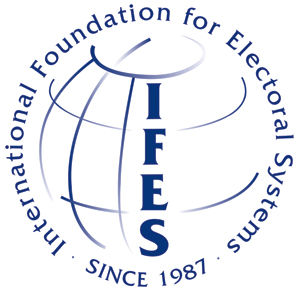
This post originally appeared on the International Foundation for Electoral Systems News section.
A briefing series inspired by sustainable development goal #5 (SDG5)
by Deyala El-Haddad*
On Wednesday, November 14, the International Foundation for Electoral Systems (IFES) and Congresswoman Sheila Jackson Lee (D-Texas) held a briefing on how inclusive democracies empower women in all areas of political and public life and can benefit economies as a whole.
Key takeaways from the briefing include:
- Women’s economic empowerment is multifaceted. Intersectionality and issues such as disproportionate poverty rates, persistent pay gaps between men and women, unequal educational returns and wages, and unequal leadership roles among industries must be considered.
- There is an unequal representation of women in policymaking and as leaders in public offices. Even after the 2018 United States (U.S.) general elections’ “pink wave,” the number of women in Congress will stand at just 23 percent.
- Women’s economic empowerment mandates simultaneous investments in:
- Anti-poverty programs, health and education;
- Legal and structural opportunities;
- Representation in leadership and policymaking; and
- Creative partnerships with organizations such as the World Bank’s Women Entrepreneurs Finance Initiative, Gender Equality in Public Administration, United Nations Development Programme and the University of Pittsburgh’s Gender Inequality Research Lab (GIRL@Pitt).
- Legal issues include unfair laws and policies biased against women – 104 countries restrict the kinds of jobs women can hold, 75 restrict women’s property rights, 59 provide no legal protection against sexual harassment in the workplace and 18 require women to have their husband’s permission to work outside the home.
- Legal reform is possible and benefits women, families and entire economies. Solutions include incentivizing legal and policy reforms, increasing women’s access to capital and financial services, creating an economic inclusion fund, promoting technology and innovation, supporting research and data collection, and enacting U.S. domestic policies to lead by example.
- When women have a voice in shaping laws and policies, economies prosper and foster ecosystems for entrepreneurship. This ensures successful programs and equal opportunities at all levels for women and girls worldwide.
- Safe spaces and workshops where women come together to talk about their experiences can create a sense of agency.
The event featured opening remarks by IFES President and CEO Anthony Banbury and was moderated by IFES Senior Congressional Liaison and Development Officer Elizabeth Sidell. Panelists included Dr. Müge Kökten Finkel, assistant professor of international development and co-director of GIRL@Pitt; Barbara Langley, director of the Center for Women’s Economic Empowerment at the Center for International Private Enterprise; Robin R. Runge, senior gender specialist at the Solidarity Center; and Rachel Vogelstein, Douglas Dillon Senior Fellow and director of the Women and Foreign Policy Program at the Council on Foreign Relations.
A video of the event is available below.
The discussion was the seventh installment of a briefing series organized by IFES exploring each element of SDG5. Previous panel topics include “Preventing Violence Against Women in Elections,” “Ending Harmful Practices: Voices from the Field” and “Women and Technology: Enhancing Political Participation.”
The next briefing will take place on January 16, 2019. Please contact esidell@ifes.org for more information.
*El-Haddad is an administrative coordinator at IFES.
Published Date: December 14, 2018
